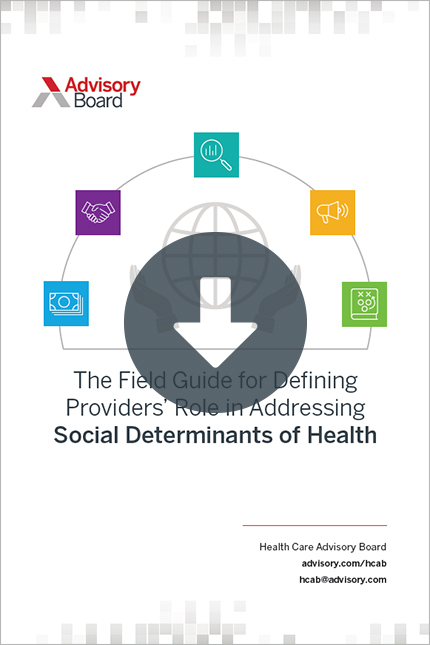Auto logout in seconds.
Continue LogoutNearly a third of Americans skipped necessary medical care this summer due to cost, leading many to see their health worsen, according to a new poll by the West Health Policy Center and Gallup.
Cheat sheets: Population health
Poll details and key findings
For the poll, West Health and Gallup surveyed 6,663 American adults from all 50 states and the District of Columbia between Sept. 27 and Sept. 30 and Oct. 18 and Oct. 21.
Overall, the poll found that 30% of respondents said they did not seek treatment for a health problem due to cost—a significant increase from the 10% who expressed a similar sentiment in a West Health-Gallup poll from March. This financial impact of health care is also affecting households of all income levels surveyed, with 20% of households making more than $120,000 reporting they delayed care due to cost.
In addition, 30% of respondents said they would not be able to access affordable health care if they needed it today, and 42% said they worried about not being able to pay for necessary medical care over the next year.
This postponement of medical care has negatively affected people's overall health. For example, one in five respondents also said they or a family member saw their health deteriorate due to delays in care. In particular, Medicaid beneficiaries (37%) and individuals without insurance (39%) said that their health conditions, which are usually chronic, worsened over the past year after postponing care.
Furthermore, one in 20 respondents—equal to an estimated 12.7 million Americans—said they knew a friend or relative who had died over the past year after forgoing medical care due to the cost. According to the poll, Black Americans were twice as likely as white Americans to have had this experience.
According to Modern Healthcare, many hospitals have also reported fewer patients coming in for care for certain conditions. And when they do come in, their health is worse than it was before the pandemic.
For example, at Providence St. Joseph Hospital Orange, fewer patients are coming in for stomach issues, according to Glenn Raup, the hospital's executive director of behavioral health, emergency, and observational health. "Fewer endoscopies and colonoscopies are being performed," he said. "As a result of that, when they do finally present to the ED, they are significantly worse."
Comments
"For the richest country in the world to suffer those levels of mortality as a direct function of an inability to pay—if that is not a wakeup call, I don't know what is," said Dan Witters, a senior researcher for Gallup. "When people have to put $60 of gas in their tanks or spend more on groceries, it really exacerbates the worsening healthcare cost crisis in the U.S."
Separately, Tim Lash, president of West Health Policy Center, said the fact that respondents earning "significantly higher" than the median income are also struggling with health care costs "tells you that we have a real problem."
"It tells me that we're at a breaking point and … those [who] are desperate are not just low-income individuals but even those [who] are more affluent," Lash said. "It shows you how fragile our health care system is and how fragile families can be when they're trying to access it."
Overall, Lash said that "[m]any people have developed new chronic conditions" due to postponing care, which has prolonged the cycle of disproportionate health care costs.
"The health care system isn't well-equipped and can take sometimes months or years to address the social and physical issues associated with those types of conditions," Lash said. "Our path out of the pandemic may be more clear, but the path out of health care's financial toxicity is not." (Kacik, Modern Healthcare, 12/14; Coleman, The Hill, 12/14; West Health-Gallup poll, 12/14)
Don't miss out on the latest Advisory Board insights
Create your free account to access 1 resource, including the latest research and webinars.
Want access without creating an account?
You have 1 free members-only resource remaining this month.
1 free members-only resources remaining
1 free members-only resources remaining
You've reached your limit of free insights
Become a member to access all of Advisory Board's resources, events, and experts
Never miss out on the latest innovative health care content tailored to you.
Benefits include:
You've reached your limit of free insights
Become a member to access all of Advisory Board's resources, events, and experts
Never miss out on the latest innovative health care content tailored to you.
Benefits include:
This content is available through your Curated Research partnership with Advisory Board. Click on ‘view this resource’ to read the full piece
Email ask@advisory.com to learn more
Click on ‘Become a Member’ to learn about the benefits of a Full-Access partnership with Advisory Board
Never miss out on the latest innovative health care content tailored to you.
Benefits Include:
This is for members only. Learn more.
Click on ‘Become a Member’ to learn about the benefits of a Full-Access partnership with Advisory Board
Never miss out on the latest innovative health care content tailored to you.

